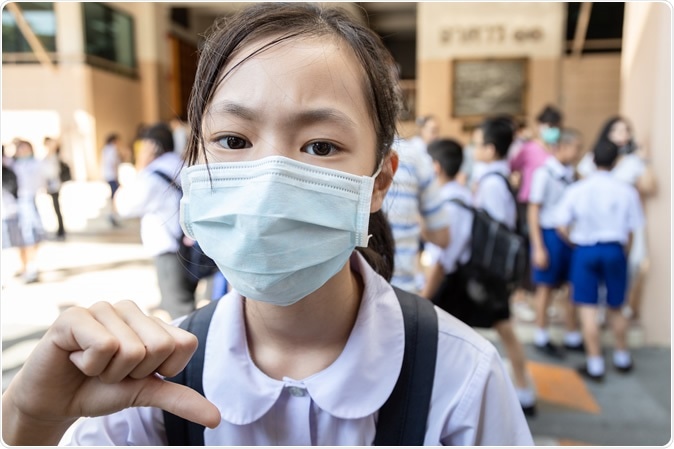The new coronavirus (COVID-19) mysteriously spares children from severe disease, but it does not mean they do not get it. Though children and teens do not appear so far to get sick COVID-19, they play a pivotal role in the spread of the deadly pathogen.
There is no evidence that children are more or less susceptible to the novel coronavirus disease, but most confirmed cases reported have occurred in adults. There are infections noted in children, including very young ones, but they recover, and some may not manifest any symptoms.
However, parents are understandably concerned about the coronavirus disease, which has now sickened more than 126,000 people across 114 countries and territories and caused the death of more than 4,600 people. It is essential to keep in mind that comparatively few children have tested positive for the virus.

Image Credit: CGN089 / Shutterstock
What is COVID-19?
The coronavirus disease (COVID-19) is a condition characterized by respiratory issues, caused by the severe acute respiratory syndrome coronavirus 2 (SARS-CoV-2). It is a strain of a family of viruses discovered in the 1960s. Coronaviruses circulate in humans, usually causing only mild illness, such as cough and colds. These viruses often thrive in wild animals, such as bats.
The coronavirus outbreak was first reported at a seafood market in Wuhan City, Hubei Province, China, in late December 2019. Dozens of people were infected, and over the next couple of weeks, the cases ballooned, reaching more than 80,000 as of writing. Since then, the virus has spread to more than a hundred countries, with infections happening now in three hotspot countries - Italy, Iran, and South Korea.
All the infections have one thing in common – they affect older adults the most, including those with underlying medical conditions. A majority of infections and deaths have occurred in people who are more than 60 years old. Younger people tend to get the virus but manifest only mild symptoms.
The common signs and symptoms reported were fever, dry cough, and shortness of breath, or difficulty breathing.
Severity increases with age
The China Center for Disease Control and Prevention reported that 87 percent of the more than 44,000 coronavirus cases in February are people between the ages of 30 and 79. Only 8.1 percent of cases were teens, while 0.9 percent was nine years old and below.
In a report published online in the journal JAMA, of the 44,672 people with confirmed COVID-19, 1,408 or 3 percent were people who are more than 80 years old, 38,680 people were from 30 to 79 years old, while only 416 cases were children below ten years old.
Children who contract the virus may only exhibit milder symptoms and, in some cases, none at all. Children with a confirmed COVID-19 may present with cold-like symptoms, such as fever, cough, and colds. Still, there are children who are at an increased risk of severe infection, such as those with underlying health conditions such as asthma, and those with weakened immune systems. Severe complications like acute respiratory syndrome may be reported, but are rare.
Children play major role in virus spread
It remains unclear why the coronavirus disease appears so far to spare children. The low numbers of infections may be due to fewer children being exposed to the virus, few children being infected, or few children developing symptoms, severe enough to seek medical care.
Even if children do not get sick or present severe COVID-19 disease, they still contribute to the rapid virus spread. Children are mobile since they attend school and play with other children. They always go with groups, such as in classrooms, shedding large volumes of the virus. They carry the virus, even without symptoms.
What can be done?
Shutting down schools amid the coronavirus spread is an excellent strategy to contain the virus. It is an effective community prevention strategy. Governments may need to consider school closures as a precautionary measure to prevent the further spread of the coronavirus.
Parents should always practice good hygiene at home and educate their children to do the same. Promote regular handwashing at home while teaching them to do the same at school.
The World Health Organization (WHO) recommends that people should channel their concern into good hygiene, encouraging children to wash their hands with soap and water regularly. They should wash their hands after being out in public, before and after eating, and after going to the toilet.
Parents should teach their children about respiratory hygiene and social distancing. They should not be around other people within 3 feet, and if they cough or sneeze, they should cover their mouth and nose with a tissue, and disposing of it in a closed bin.